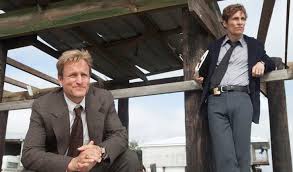Month: June 2014
That essentially was the question we explored on the 3rd episode of ReInvent Hollywood on the audience. Check out the 10 minute recap here:
By Beanie Barnes
Data is a funny thing. It can, at once, confirm and discredit the exact same theory. For example, if a $500m film makes $100m at the box office on its opening weekend, it could mean that the film is a) a bust or b) gaining momentum. Such was the case with Avatar. By the end of 2009, several people were calling the film a “flop,” but by mid-2010, it was obvious that, of all the words to describe Avatar, “flop” was not one of them. And although the film has been hailed as a marketing and technological success, if it had failed, it very likely would have been called it a marketing and technological bomb (with marketing heads rolling at the studio).
Misreading data is prevalent in film. It isn’t so much that we misread the tea leaves, so much as it is that, rather than reading the tea leaves as they are, we’re more prone to read the leaves the way we want to see them or only read the leaves at the surface while overlooking others hiding below.
By Christina Kallas
 Paddy Chayefsky once wrote that “television is an endless, almost monstrous drain” (The Television Plays, 1955.) And he continued: “How many ideas does a writer have? How many insights can he make? How deep can he probe into himself, how much energy can he activate?” Furthermore, “he (the writer) has no guarantee that his next year will be as fruitful. In fact most writers live in a restrained terror of being unable to think up their next idea. Very few television writers can seriously hope to keep up a high-level output for more than five years.”
Paddy Chayefsky once wrote that “television is an endless, almost monstrous drain” (The Television Plays, 1955.) And he continued: “How many ideas does a writer have? How many insights can he make? How deep can he probe into himself, how much energy can he activate?” Furthermore, “he (the writer) has no guarantee that his next year will be as fruitful. In fact most writers live in a restrained terror of being unable to think up their next idea. Very few television writers can seriously hope to keep up a high-level output for more than five years.”
We move things ahead by sharing what know and learn. That has been the impetus behind this blog and many others. The same can be said about case studies. Lately it has also become the impetus behind handbooks and the like. Here’s a few you must download and read:
By Matthew Helderman, & Luke Taylor
Must Read Interview
I was definitely “on message” with this interview for this really beautiful Danish magazine The CIFF Gazette. I think I capture what will be the next chapter in the future of film pretty f’n well, if I do say so myself.


